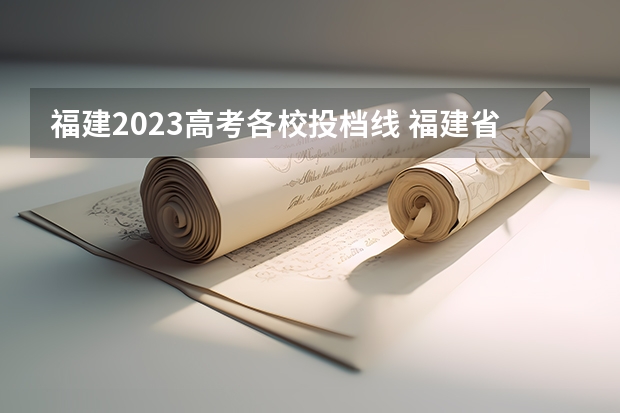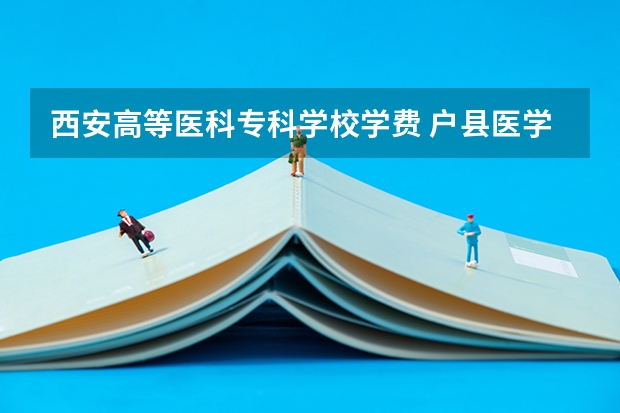2024高考英语常考短语 请列举下高考常考的英语不及物动词和用法
2024-02-13 05:51:07 | 青橄榄
本文目录一览:

高考英语中省略常见考点讲解
在英语中,为了避免重复,句子中的某些部分经常省略,给考生的理解增加了困难。在近几年的NMET中,省略现象十分常见,为帮助考生更好地迎战高考,现对省略现象总结如下一、并列复合句中某些相同成分的省略。
1. This beeper works well,but that one doesn't (work well).
这个寻呼机工作正常,但那个就不行。
2. All uranium atoms do not have the same atomic weight. Some of them weigh 234
units,some (of them) (weigh) 235 units,and some (of them) (weigh) 238 units.
所有的铀原子并非都有相同的原子量。其中有的重234,有的重235,而有的重238。
二、在when,while,if, as if,though(或although),as,until,once,wheth er,unless,
where等连词连接的状语从句中,常省略跟主句相同的主语和be动词。
1. When (water is) pure,water is a colorless liquid. 水纯净时,是无色的液体。
2. When (I am) in trouble I always turn to her for help. 我困难时总是找她帮助。
3. Errors,if any,should be corrected.
如果有什么错误,就应当改正。(if后省略了there are)
4. Wood gives much smoke while (wood is) burning. 木头燃烧时,它放出很多烟。
5. The letter is to be left here until (it is) called for. 这封信留在这里待领。
6. Henry looked about as if (he were) in search of something.
亨利向四周环视,似乎在寻找什么。
7. She studies very hard though (she is) still rather weak.
她尽管体弱,但学习仍十分努力。
三、当见到“when (或if,where,wherever,whenever,as soon as,as fast a s,than等)+
possible/necessary等”时,可理解中间省略了it is(或was)。
1. Answer these questions,if (it is) possible without referring to the book.
如果有可能,请不看书回答这些问题。
2. When (it is) necessary you can help us to do something.
必要时你可以帮助我们做些事。
四、有形式主语it的主语从句可省略that。
1. It seems (或appears) (that) Joe is out,not Jack. 外出不在的似乎是乔,不是杰克。
2. It is an honor (that) I was invited to your birthday party.
我很荣幸被邀请参加你的生日聚会。
3. It's a pity (that) you can't operate a computer.很遗憾,你不会操作计算机。
4. It is the third time (that) I have come to China.这是我第三次来中国。
五、在限制性定语从句中可省略作宾语的关系代词whom,which,that。
1. That is the naughty boy (whom/that) we talked about last week.
那就是我们上周议论的淘气男孩。
六、在direction(方向),way(方式),distance(距离),time(时间),times(倍数)等后面所
接的定语从句中常省略that,which,in which。
1. The direction (in which) we move a body can be changed.
我们移动物体的方向是可以改变的。
2. The distance (which或that) light travels in one second is 300,000 kilometers.
光每秒走的距离是30万公里。
七、以there be开头的句子,其主语的定语从句常可省略关联词,而there be结构作定语从句
时,省略作主语的关系代词。
1. There is a chance Dr. Li will be able to be back for May Day.
李博士也许有机会能回来过五一节。
2. We have to make a list of all the books there are on the subject.
我们必须把所有关于这个题目的书列出一个单子。
八、命令句、惊叹句、部分第一人称的陈述句、部分问句和答句中省略最为常见。
1. Open the door!开门!
2. Why not?为什么不?
3. Why so?为什么这样?
4. Anybody wishing to go?谁愿意去啊?
九、用so,not或其它手段来省略上文或问句中的一部分或整个句义,是NMET的常考项目。
1.—Can Emily do this work?
埃米莉能做这件工作吗?
—I think so.我想她行。
—I think not (或I don't think so).我想她不行。
2.—Did you know anything about it?这件事你以前知道吗?
—Not until you told me.你告诉了我,才知道。
3. He has gone. No one knowsswheres(he has gone).
他走了,谁也不知道他去什么地方了。
4. Jenny knows what (is to be done)! 詹妮有办法!
十、当用强调句型强调疑问词时,常省略强调句型中的that。
1. When was it (that) you received his e-mail? 你收到他的电子邮件是什么时候?
2. We don't know who it was (that) called the doctor?我们不知道是谁请了医生?
十一、某些形容词要求后面接一固定的介词短语,若接一从句,则只用that或疑问词直接引
出从句,从而省略原有的介词。
1. We are certain(省去of)that air is a mixture.我们可以肯定,空气是混合物。
2. She is doubtful (省去about) whether she can complete it in time.她怀疑她能否按时完成。
十二、用to表示前述动词(包括谓语或非谓语动词)及其短语。
1. You may go online if you like (to) (go online).你如果想上网就可以上网。
2. Nothing can stop the boy from playing video games when he wants to (play).
当这男孩想玩电子游戏时,没有东西可阻碍他玩。
十三、在某些动词后含有宾语补语或主语补语的复合结构中省略to be或being的情况。
1. They found the answer (to be) correct.他们发现答案正确。
2. This conclusion proved (to be) correct.这个结论原来是正确的。
十四、新闻标题要求简练醒目,需根据上下文的语境推敲其省略部分。
1. Boy 14,rescued from cliff face.
从峭壁上救下14岁的男孩(A boy of 14 has been rescued from cliff face.)。
2. American President to fly to London.
美国总统将飞往伦敦(American President is to fly to London.)。
十五、注意在一些固定短语中某些介词的省略。
have trouble (in) sleeping难于入睡。
spend one's evenings (in) reading novels把晚上的时间花费在看小说上。
be busy (in) doing sth. (他)忙于做某事。
They are (of) the same age. 他们年龄相同。
There is no use (in) explaining it to her any more.这件事再向她解释是无用的。
He is carrying out this experiment (in) the same way as I did yesterday.
他使用我昨天采用的方法在做他的实验。
省略常见考点讲解
为了使讲话和行文简洁,句中某些成分有时可以省略。省略可分为以下几种情况:
(一)简单句中的省略 1、省略主语
(1)祈使句中的主语通常被省略。如: (I)Beg your pardon. (请再说一遍。——括号内为省略的词语,下同)
(2)其它省略主语多限于少数现成的说法。如:
①(I)Thank you for your help. ②(I)See you tomorrow. ③(It)Doesn’t matter.
2、省略主谓语或主谓语的一部分。如:
①(There is)No smoking.(禁止吸烟。) ②(Is there)Anything else?(还有其它事吗?)
③(You come)This way,please.(请这边走。) ④(Will you)Have a smoke?(吸支烟?)
⑤What(do you think)about a cup of tea? ⑥Why(do you)not say hello to him?(为何不向他问好呢?)
3、省略宾语
(1)省略宾语的全部。如: ①---Do you know Miss Gao? -----I don’t know (her).
②----Which of the two is the better choice?----Well,it’s hard to tell (it).
(2)在一定的语境中,在某些动词(如want,wish,hope,like,love等)之后,可省略作宾语的不定式短语,只保留to。如: ①-----Are you going there?-----I’d like to (go there).
②He didn’t give me the chance,though he had promised to (give me the chance).
如果该宾语是be动词或是动词的完成时态,则须在to之后加be或have。如:
③--Are you an engineer?--No,but I want to be(an engineer).
④--He hasn’t finished the task yet.---Well,he ought to have(finished the task).
4、省略表语。如: ①----Are you thirsty?-----Yes,I am(thirsty).
②His brother is not lazy,nor is his sister(lazy).
5、同时省略几个成分。如: ①---Are you feeling better now?--(I am feeling )Much better (now).
②--Have you finished your work?--(I have)Not(finished my work)yet.
(二)并列句中的省略
两个并列分句中,后一个分句常省略与前一个分句中相同的部分。如:
① My father is a doctor and my mother (is) a nurse.
② I study at college and my sister(studies)at high school.
(三)主从复合句中的省略
1、句中有一些成分被省略(多见于句首)。如:
①(I’m)Sorry to hear that you are ill. ②(It is)Pity we live so far from the sea.
2、省略了从句中与主句相同的部分。如:
①They don’t visit their parents as much as they ought to(visit their parents).
②My friend can’t come to school,but I wonder why(he can’t come).
3、省略了一个从句或从句的一部分,用so或not(切不可用it或that)代替。如:
①----She must be busy now.----If so,she can’t go with us.
②----Is he feeling better today?----I’m afraid not.
类似的用法还有:How so?/Why so?/Is that so?/Do you think so?/Quite so./He said so./I hope so./I don’t think so./I suppose not./I believe not./I hope not,等。
4、句和从句各有一些成分被省略。如:
①The sooner(you do it),the better(it will be).
②----Is Mr King in his office?----(I’m)Sorry,I don’t know(whether he is or not).
(四)其它省略
英语省略的情况还有很多,下面归纳几种需要注意的情况:
1、that的省略
(1)宾语从句中常省略连词 that,但并列多个宾语从句中,只能省略第一个that。
(2)在定语从句中,通常当that在从句中作宾语时,才能省略。如:
The noodles (that)I cooked were delicious.
(3)在主语从句、同位语从句中that很少省略(口语中有省略),在表语从句中偶尔省略。
2、不定式符号to的省略
(1)并列的不定式,前面的不定式带to,后面的不定式可省去to。如:①I told him to sit down and wait a while.
但是,如果两个不定式之间有对比关系,则不可省去to。如:
Hearing the news,we didn’t know whether to laugh or to cry.
(2)某些使役动词(如make,let,have)及感官动词(如see,watch,notice,observe,hear,feel,look at,listen to等)后面作宾语补足语的不定式一定要省去to,但在被动语态中须把to复原。比较:
I saw the boy fall from the tree./The boy was seen to fall from the tree.
He often makes his sister cry,but today he was made to cry by his sister.
(3)find当“发现”讲时,后面作宾语补足语不定式的符号to可以省去,也可以不省。如:
We found him(to)work hard at the experiment.
但如果不定式是to be则to不能省略。如: She found him to be dishonest.
(4)help当“帮助”讲时,后面的宾语或宾语补足语的不定式符号to可省,也可不省。如:
I will help(to)do it for you./I will help you(to)do it.
(5)介词but,except前若有动词do,后面的动词不定式不带to。如:
① The boy does nothing but play all day.
② The animals have nothing to do but lie down and sleep in winter.
(6)主语从句中有动词do,后面作表语的动词不定式的to可带可不带。如:What we can do now is (to) wait.
3、连词if在部分虚拟条件句中可省略,但后面的语序要有变化。(见“倒装句”有关部分)
4、在某些状语从句中,从句的主语与主句的主语一致时,可省去“主语+be”部分,如:
① As(he was)a child,he often asked many interesting questions. ② I’m going with you if(I am)free.
③ He opened his lips as if(he were)to speak.
5、在某些状语从句中,从句的主语是it,其后的动词be及其主语可一起省略。如:
① Fill in the blanks with articles,if(it is)necessary.
② Whenever(it was)possible,they would stop him and ask him the three questions.
6、在than和as引导的比较状语从句中,在意义明确的情况下,可省略than和as后的任何部分。如:
① I know you than he(knows you). ② I know you than(I know)him.
③ In winter,it is colder here than(it is cold)in your hometown. ④ I’m nearly as tall as he(is).
专项题组训练
1.He became a good player_____in college.
A.when B.because C.as soon as D.even though
2._____green,the door might look more beautiful.
A.You painted B.If painted C.To paint D.Have it painted
3.-----The patient feels better.-----I know_______.
A.he feels B.he does C.he does so D.he does it
4.----Have you been here long?-----_________.
A.Not much B.Yes,only little C.No,only yesterday D.No,not very
5.----Do you need a new dictionary in your English study?---No,____.
A.I have some to do it B.there are some already
C.I think I have some that will do D.I’m having some dictionaries
6.I told him to sit down and_____for a moment.
A.waits B.waited C.wait D.waiting
7.My father is a doctor and my mother________.
A.nurse B.a nurse C.be a nurse D.is nurse

2020高考英语短语词组汇总
汉语博大精深,往往几个字,一个词就能表达无穷的意境,但如果在翻译题中遇到了这些词汇,我们该如何翻译呢?接下来是我为大家整理的2020高考 英语 短语 词组汇总,希望大家喜欢!
2020高考英语短语词组汇总一
可接双宾语的38个常用动词
(1)双宾语易位时需借助介词to的常用动词
awardsb.sth.=awardsth.tosb.颁奖给某人
bringsb.sth.=bringsth.tosb.把某物带给某人
handsb.sth.=handsth.tosb.把某物递给某人
lendsb.sth.=lendsth.tosb.把某物借给某人
mailsb.sth.=mailsth.tosb.把某物寄给某人
offersb.sth.=offersth.tosb.将某物给某人
owesb.sth.=owesth.tosb.欠某人某物
passsb.sth.=passsth.tosb.把某物递给某人
paysb.sth.=paysth.tosb.付给某人某物(钱)
postsb.sth.=poststh.tosb.把某物寄给某人
readsb.sth.=readsth.tosb.把某物读给某人听
returnsb.sth.=returnsth.tosb.把某物还给某人
sendsb.sth.=sendsth.tosb.把某物送给某人
sellsb.sth.=sellsth.tosb.把某物卖给某人
servesb.sth.=servesth.tosb.拿某物招待某人
showsb.sth.=showsth.tosb.拿某物给某人看
takesb.sth.=takesth.tosb.把某物拿给某人
teachsb.sth.=teachsth.tosb.教某人某物
tellsb.sth.=tellsth.tosb.告诉某人某情况
throwsb.sth.=throwsth.tosb.把某物扔给某人
writesb.sth.=writesth.tosb.给某人写信
(2)双宾语易位时需借助介词for的常用动词
booksb.sth.=booksth.forsb.为某人预定某物
buysb.sth.=buysth.forsb.为某人买某物
choosesb.sth.=choosesth.forsb.为某人选某物
cooksb.sth.=cooksth.forsb.为某人煮某物
drawsb.sth.=drawsth.forsb.为某人画某物
fetchsb.sth.=fetchsth.forsb.为某人去取某物
findsb.sth.=findsth.forsb.为某人找到某物
fixsb.sth.=fixsth.forsb.为某人准备某物
getsb.sth.=getsth.forsb.为某人拿来某物
makesb.sth.=makesth.forsb.为某人做某物
2020高考英语短语词组汇总二
1.answers for 对……负责/担保;保证(某事)良好;承受…的结果
2.ask for 请求、寻找、要求见某人
3.break down失败、落空、毁掉、拆除、损坏、瓦解、崩溃、粉碎、分为细目
4.break in训练、驯养、闯入、破门而入、打断、插嘴、开始使用
5.break out发生、爆发、逃出、突围、由贮藏处取出使用、突然说出[发出、做出]
6.break up停止、散开、拆开、(完全)分解、分成小块、结束、(学校期末)放假、衰弱、(精神)崩溃、解散、使哄堂大笑、打断、破坏、断交、绝交、破裂、(天气)突然变化
7.bring out揭露、显示、解释、说明、出版、演出、使罢工、使免除、使开花、说出、暴露、诱导、引出
8.bring up养育、提出、教养、提升、开赴前线、[俗]呕吐
9.call for对…需要、要求、提倡、去接某人、去拿某物
10.carry away运[搬、带]走、水冲走...、[一般用被动态]使着迷、使陶醉、使神魂颠倒、受感动、使失去自制力、(风暴)刮断...、赢得(奖品等)
11.carry on继续开展、进行下去、经营、处理
12.catch on[口]投合人心、受人欢迎、理解、明白、抓住、流行起来、找到工作
13.come on突然产生、进展、生长、发育、、偶遇、跟着来、开始、出台、(运动员的上场)快点、赶快
14.come up走近、上(楼)来、(从土中)长出、发芽、被提出、流行起来、进城(尤指去伦敦)、上升、抬头、[俗]呕吐、快!(驱使牛、马行走或前进时的吆喝)
15.cut down砍倒, 胜过, 削减, 删节、压缩、缩短
16.cut in插嘴, 插入, 把...插进
17.cut out删掉、停止、戒掉、不吃、(机器)失灵、(自动)关掉、剪下来、剪裁、切除
18.cut through穿过、穿透; 克服; 避开; 不理睬; 剪断、简化
19.cut up切[破]碎、使难过、使痛苦、歼灭(敌兵等)、砍[割]伤、[口] 吹毛求疵
20.direct to指路、针对、把(注意力、精力)贯注在...上
21.fall down跌倒; 倒塌下来、[口]计划不切实际、失信; 没有完成或履行诺言
22.fall over落在...之上、脸朝下跌倒、极力/急于做
23.find out找出, 发现, 查明(真相等), 认识到, 想出, 揭发
24.get across使通过、讲清楚、使人了解
25.get along过日子、过活、相处、进展/步、[口]走开
26.get around走动、克服困难/障碍等、避开(规章等)、传开
27.get away(使)摆脱、(使)离开、无视、对...置之不理、(把某人[物])从...争取[吸引]过来
28.get back for回来、取回
29.get back from从…回来/返回
30.get down to开始认真考虑、着手办理(某事)
31.get in进站、到达、回来、收集[割]、请...来做、加[插]入、进入、(使)陷入、(使)卷入、
32.get off下来、下车、起飞、(动身)离开、不受惩罚、被放过、脱下(衣服)
33.get on with继续(做某事)、与...和睦相处
34.get out of下车、走出、离开、摆脱、从……得到、改掉(习惯)、取[拔、弄]出
35.get over越[爬]过、克服、忍受、复原、痊愈、完成、走完、[口]忘记
36.get through完成、及格、到达、通过、用尽[完]、打通(电话)
37.get together收集、积累、聚集
38.give away背弃、出买、泄露(秘密)、暴露、散掉、给掉、赠送、分送、颁发、放弃、牺牲
39.give in 屈服、投降、退让(to)、交/呈上、宣布、发表
40.give off(散)发出(蒸气、烟)、发散(光线)
41.give out用完、用尽、散[分]发、公布、发表、精疲力竭、失灵
42.give up 放弃、停[中]止、让[交]给、投降、认输、泄气、泄露、说出
43.go by (从...旁)走过, 依照, 顺便走访、时间过去
44.go out出去[国]、(妇女)离家工作、辞职、退职、下台、(灯、炉火)熄灭、不再流行、(衣服样式等)过时、参加社交活动、交际、出版、罢工、失去知觉、入睡
45.go over越[渡]过、走完、转向(to)、改变立场、车(翻倒)、复习、(仔细)检查、审阅、研究
46.go through经历, 经受, 仔细检查, 用完, 被通过,搜查, 履行
47.hand over移交、让与
48.have on穿戴
49.hold on to紧紧抓住(尤指坚持不放)、不放弃、不送掉、不卖出、控制、克制、
50.hold up举起, 支撑, 继续下去, 阻挡, 拦截、抢劫
2020高考英语短语词组汇总三
高考英语词组用法:not only…but also…的用法
not only…but also…,其意为“不但…而且…”:
Not only men but also women were chosen. 选中的不仅有男的也有女的。
He not only read the book, but also remembered what he read. 他不仅读过这本书,而且还记得书中的内容。
【注】该结构中的also有时可省略,或与but分开用,或用too, as well代之(位于句末):
Not only is he funny, but he is witty too [as well]. 他不但风趣,而且也很机智。
若连接两个成分作主语,其谓语通常与靠近的主语保持一致:
Not only you but also he has to leave. 不只是你,他也得离开。
2020高考英语短语词组汇总四
turn的词组
(1) He was poor but proud and turned down every offer of help.<拒绝接受>
(2) The campers usually turned in as soon as it got dark.<上床睡觉>
(3) The teachers have to turn in the reports at the end of the school year.<上交>
(4) The examination turned out(to be)easy.<结果是,最后情况是>
(5) Bob turns over most of the money he earns to his mother.<移交,交给>
(6) The car struck the wall and turned over.<撞翻,翻倒>
(7) He turned over in bed.<翻身,翻转>
(8) Please turn over this page.<翻过>
(9) The missing boy turned up<出现>
(10) If you have some questions,you can turn to your teachers for help.
<求助于>
(11) Mozart's music always turns me on/off.<使感兴趣/使不感兴趣>
(12) She turned away in horror at the sight of so much blood.<转身不看>
(13) Because the hall was full,many people were turned a way.<撵走>
(14) turn a blind eye to/on<视而不见>
(15) turn a deaf ear to <充耳不闻>
(16) turn about<向后转>
(17) turn against<反对,背叛> 青橄榄
(18) turn back<返回,折回,使往回走>
(19) by turns<轮流>
(20) in turn<一个挨一个地又(对别人)做同样的事>
(21) take turns<轮流(做某事)>
(题组训练) 同义词 组替换:
65、I have waited for him for hours but he hasn't ________________ (appeared)yet.
66、His invitation is ________________ (refused).
67、If you don't know the words,you can ________________ (refer to)a dictionary.
答案:65、turned up 66、turned down 67、turn to
2020高考英语短语词组汇总相关 文章 :
★ 2020高考英语必备短语大全
★ 关于2020年高考英语短语的重要固定搭配短语盘点
★ 2020年最新高中三年的英语短语大全
★ 2020年最新的高考英语中的词组固定搭配分享
★ 高考英语高频词汇词组2020
★ 高考英语高频短语汇总
★ 2020高考英语词汇汇总
★ 高考英语短语大全
★ 高考英语高频词汇词组2020(3)
★ 2020年高考英语知识点汇总

请列举下高考常考的英语不及物动词和用法
英语中按动词后可否直接跟宾语,可把动词分成及物动词和不及物动词。不及物动词:字典里词后标有vi. 的就是不及物动词。不及物动词后不能直接跟有动作的对象(即宾语)。若要跟宾语,必须先在其后添加上某个介词,如to,of ,at后方可跟上宾语。具体每个动词后究竟加什么介词就得联系动词短语了.
常用的不及物动词
appear ,Appear calm
come ,Come easy (safe)
go ,Go mad (crazy, bad, sour, wrong, crazy, hungry, blind)
get ,Get angry (ill, wet, excited, married, paid)
fall ,Fall asleep( fall ill, fall short, fall flat)
feel ,Feel good (sleepy)
keep ,Keep quiet (silent)
look ,Look fit (well, young, tired)
make, Make certain (sure, ready, a good teacher)
prove ,Prove an effective method (correct, accurate)
remain ,Remain still (unchanged)
rest,Rest satisfied (content)
rise, Rise red
seem ,Seem happy
stand ,Stand still
stay ,Stay young (stay fresh, the same)
turn, Turn teacher =become a teacher (yellow)
turn out ,Turn out true
用法举例
Look carefully! (注意:carefully 是副词,不是名词,故不作宾语)
look at 看…….+宾语 Look at me carefully! (me是代词,作宾语)
(at是小范围 in是大范围)
如: The students work very hard.学生们很努力地学习。
She apologized to me again. 她再次向我道歉。
The accident happened yesterday evening.昨天晚上发生了事故。
与及物动词的区别
及物动词与不及物动词的区别从是否需要宾语来分,实义动词分为及物动词和不及物动词两类。
1)及物动词 后面必须跟宾语意义才完整的实义动词,叫做及物动词(transitive verb)。如: I believe that the committee will consider our suggestion.我相信委员会将会考虑我们的建议。
“How long can I keep the book ?”Harry asked.哈里问:“这本书我可以借多久?”
2)不及物动词 本身意义完整后面不须跟宾语的实义动词,叫做不及物动词(intransitive verb)。如: Birds fly.鸟会飞。
It happened in June 1932.这件事发生于一九三二年六月。
My watch stopped.我的表停了。
She spoke at the meeting yesterday evening. 她在昨天晚上的会上发了言。
3)兼作及物动词和不及物动词 英语里有不少实义动词可以兼作及物动词和不及物动词。这样的动词又有两种不同的情况:
a)兼作及物动词和不及物动词时,意义不变。试比较:
Shall I begin at once?我可以立刻开始吗?(begin作不及物动词)
She began working as a librarian after she left school.她毕业后当图书馆管理员。(begin作及物动词)
When did they leave Chicago?他们是什么时候离开芝加哥的?(leave 作及物动词)
They left last week. 他们是上周离开的。(left 作不及物动词)
b)兼作及物动词和不及物动词时,有时意义不尽相同。如:
Wash your hands before meals.饭前要洗手。
Does this cloth wash well? 这布经得起洗吗?
4) 与汉语的比较 有时英语动词的及物和不及物的用法,与汉语的用法不一样,请注意下列两种情况:
a)有的动词在英语里只能用作不及物动词,而汉语则可用作及物动词,如arrive到达,agree同意,1isten听。英语里这些动词后面常接介词。如:
We arrived at the railway station at noon.我们于中午到达火车站。(at不能省去)(比较:We reached the railway station at noon.)
Everybody listened to the lecture with great interest.每个人都很有兴趣地听讲课。(to不可省去)(比较:We all heard the lecture.)
Do they agree to the plan?他们同意这个计划吗?(to不可省去)
b)有的动词在英语里能用作及物动词,而在汉语里则不能用作及物动词,如serve为…服务。 Our children are taught to serve the people wholeheartedly.我们的儿童被教以全心全意为人民服务
及物动词后可以加宾语,不及物动词后不可以加宾语
动词的及物不及物是在英语学习中必须解决的首要问题。动词及物与不及物通常有以下几种情况:
a.主要用作及物动词。及物动词后面必须跟宾语。可以用于:"主+谓+宾";"主+谓+双宾";"主+谓+宾+宾补"结构。如:
He reached Paris the day before yesterday.
Please hand me the book over there.
They asked me to go fishing with them.
类似的还有:buy, catch, invent, found, like, observe, offer, prevent, promise, raise, find, forget, receive, regard, see, say, seat, supply, select, suppose, show, make, take, tell.... b.主要用作不及物的动词。不及物动词后面不跟宾语。只能用于:"主+谓"结构。
This is the room where I once lived.
类似的还有:agree, go, work, listen, look, come, die, belong, fall, exist, rise, arrive, sit, sail, hurry, fail, succeed....
c.既可以用作及物又可以用作不及物的动词,其意义不变。如begin 都是作"开始"讲。everybody , our game begins. let us begin our game.
类似的还有:start, answer, sing, close, consider, insist, read, learn, prepare, pay, hurt, improve....
d.既可以用作及物又可以用作不及物的动词,其意义完全不同。
这类动词作不及物动词是一个意义;而作及物动词时却是另一个意义。如lift作不及物动词时是指烟雾的"消散"。we saw the mountain when the clouds lifted. 作及物动词时是"升高;举起"。 He lifted his glass and drank.
类似的还有:beat vi.跳动 vt. 敲、打; grow vi.生长 vt. 种植 play vi.玩耍 vt. 打(牌、球),演奏 smell vi.发出(气味) vt. 嗅 ring vi.(电话、铃)响vt.打电话 speak vi.讲话 vt. 说(语言) hang vi. 悬挂 vt. 绞死 operate vi.动手术 vt. 操作
需要注意的一点是:少数不及物动词唯一可跟的宾语是同源宾语,如:I dreamed a dream last night. 以上就是2024高考英语常考短语 请列举下高考常考的英语不及物动词和用法全部内容,更多相关信息,敬请关注青橄榄。

有没有推荐的高考英语词汇书? 高中英语合集百度网盘下载 链接: ?pwd=1234 提取码:1234 简介:高中英语优质资料下载,包括:试题试卷、课件、教材、视频、各大名师网校合集。 高考英语常见单词 记忆宝背单词软件可以运行在所有支持JAVA的手机上使用。可以随时随地用手机学习外语,做到一机多用。软件非常实用,可以代替学习机的功能。无论我们走到哪里,都可以利用闲暇的时间把手

高考英语常见单词 200个句子助你理解高中英语3500词汇 老师叮咛:李辉老师说,想要提高阅读理解,词汇量是关键!下面的200个句子涵盖了整个高中的3500词。一方面可以帮助大家摆脱原来枯燥无味的背诵方式,另一方面可以帮助大家在语境中更精确的理解单词的意思!经过了全网首席高考英语名师李辉老师团队高度认真的整理校对,无错、可信!可供全国各省高中生打印、背诵! 1Weshouldalways

2022年高考英语完形填空常考高频词整理大全 英语 完形填空 为什么难?对90%的同学来说,完形填空得不了高分甚至做得惨不忍睹的最大原因是词汇量不够导致文章读不懂,选项看不懂。这次我给大家整理了高考英语完形填空常考高频词整理,供大家阅读参考。 目录 高考英语完形填空常考高频词整理 英语完型填空提分技巧 如何做好英语完形填空 高考英语完形填空常考高频词整理

高考必备高中语文古诗词 高考必备高中语文古诗词如下: 1、论语十则。 2、鱼我所欲也——《孟子》。 3、生于忧患,死于安乐——《孟子》。 4、曹刿论战——《左传》。 5、邹忌讽齐王纳谏——《战国策》。 6、出师表——诸葛亮。 7、桃花源记——陶渊明。8、三峡——郦道元。9、马说——韩愈。10、陋室铭——刘禹锡。 11、小石潭记——柳宗元。 12、岳阳楼记——范仲淹。 1

高考必背英语单词 一、一个星期七天 1.Monday2.Tuesday3.Wednesday4.Thursday5.Friday6.Saturday7.Sunday 二、一年十二个月 1.January2.February3.March4.April5.May6.June7.July8.August9.September10.October11.November12.December

高考必背英语单词 一、一个星期七天 1.Monday2.Tuesday3.Wednesday4.Thursday5.Friday6.Saturday7.Sunday 二、一年十二个月 1.January2.February3.March4.April5.May6.June7.July8.August9.September10.October11.November12.December

2024年春节晚会成语 2024年春节晚会成语如下: 1、济济一堂 济济:人多的样子;堂:大厅。形容很多的人汇聚在一起。清·归庄《静观楼讲义序》:“今也名贤秀士,济济一堂,大义正言,洋洋盈耳。”摄影中济济一堂的满是儿童。(朱自清《“海阔天空”与“古今中外”》)。 2、人才辈出 人才:指德才兼备的人或有某种特长的人;辈出:成批地连续出现。有才能的人一批接一批涌来。形

高三英语单词必背整理归纳 单词、短语是构成句子的基本要素,英语想学好,多记短语不可少!下面给大家带来一些关于高三英语单词必背整理归纳,希望对大家有所帮助。 高三英语单词必背整理1 inotherwords换句话说 Inotherwords,youhavetohaveboth.Productandpromotion. 换句话说,你必须两手都要抓,产品和促销不可偏废。 l
- 江苏高考2024一模时间 张家港一模2023年啥时候考试
- 遵义医学院去年的专科分数线 遵义医科大学珠海校区录取分数线
- 高考大专最低分数线(会计专业大学排名及分数线)
- 2024高考英语常考短语 请列举下高考常考的英语不及物动词和用法
- 全国单招公办学校排名榜最新 单招最好的学校排名
- 江西专科各院校分数线2023(南昌大学科学技术学院成人高考录取分数线)
- 广州高考考场有哪些
- 贵州康养职业大学专业录取线是多少
- 5年高考,3年模拟,政治,历史A,B版有什么区别
- 河南公办大专院校排名以及录取分数 河南郑州专科学校排名及分数线
- 2024年上海高考等级考 上海物理等级考分数段
- 兰州交通大学 专科分数线(大专各个学校分数线)
-
 提前批投档线2023福建 福建警察学院2023提前批分数线
提前批投档线2023福建 福建警察学院2023提前批分数线2023-09-16 08:08:03
-
 在郑州的公办单招学校名单 河南单招大专院校排名公办
在郑州的公办单招学校名单 河南单招大专院校排名公办2023-10-15 05:05:24
-
 2023年上海中医药大学的康复物理治疗专业录取分数是多少 上海中医药大学康复物理治疗专业往年分数线
2023年上海中医药大学的康复物理治疗专业录取分数是多少 上海中医药大学康复物理治疗专业往年分数线2023-09-21 19:19:38
-
 福建2023高考各校投档线 福建省高考分数线2023年
福建2023高考各校投档线 福建省高考分数线2023年2023-09-17 03:23:27
-
 西安高等医科专科学校学费 户县医学院学费一年多少
西安高等医科专科学校学费 户县医学院学费一年多少2023-09-11 13:56:21
-
 北京戏曲艺术职业学院2023年分数线是多少 北京戏曲艺术职业学院历年分数线参考
北京戏曲艺术职业学院2023年分数线是多少 北京戏曲艺术职业学院历年分数线参考2023-08-06 01:04:50